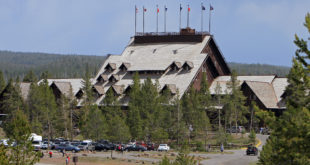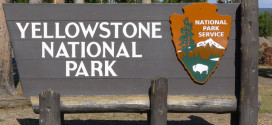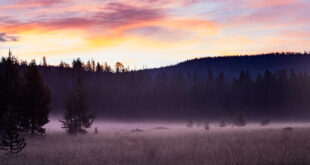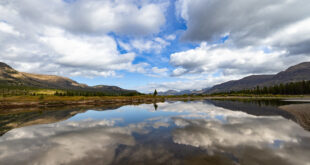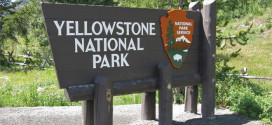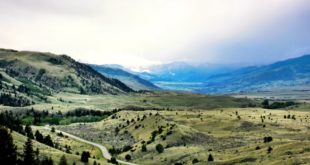The National Park Service and the state of Montana is paying Church Universal and Triumphant, owners of the ranch, $2.8 million (upfront, no less) for a 30-year lease of grazing rights. This will allow the state to implement a bison-management plan allowing 25 bison to leave Yellowstone National Park for better grazing after they’ve tested negative for brucellosis.
Let’s review the numbers:
- 25 bison will be allowed out of the park after testing negative for brucellosis.
- $2.8 million.
Ouch.
No one is satisfied with the deal: bison advocates say most of the 1,600 bison slaughtered last winter would have been put down anyway even if this plan would have been in place. Cattlemen and livestock officials say it does nothing to address the problem of brucellosis; their view is that a vaccination is the only long-term solution.
They’re both right.
The purchase of grazing rights makes for a feel-good story on a week when many roads into Yellowstone National Park were opened, but let’s face it: letting through 25 bison is a drop in the bucket. And while we’re not inclined to write off the threat of brucellosis as blithely as the New York Times did in this editorial — it may be a myth that bison can transmit brucellosis to bison, but it’s not a myth cattlemen must deal with the economic reality of ensuring their cattle remain brucellosis-free — the entire approach to brucellosis management is so screwed up right now it may be better to just blow up what’s been implemented and start from scratch.
That’s why the answer is clear: since the issue of bison grazing is so closely intertwined with brucellosis management, any plan needs to take both into account. Elk management, too, needs to be brought into the equation. The available science indicates elk is a much more likely carrier of brucellosis affecting cattle than the bison are. But the elk management in the Yellowstone ecosystem is a joke. Instead of letting the elk run free in winter, they are herded together, which increases the likelihood brucellosis is passed around; the management plan basically creates a petri dish for the ramped-up infection of elk. So, here’s what needs to happen, in our view:
Revamp the elk-management plan with the express goal of reducing brucellosis.
Continue work on a brucellosis vaccination.
Revamp the rules that deems all livestock from the state as either brucellosis-free or not. Montana’s a pretty big area for this, and if brucellosis were classified by region, rather than by the entire state, it would help reduce costs for the ranchers hundreds of miles away if there was a case of brucellosis found at a ranch near Yellowstone.
Let the bison run free. The reality is that it’s highly unlikely bison can transit brucellosis to cattle. Nature has a way of fixing imbalances, but the current plan imposes a whole set of impractical imbalances. Setting up an expensive screening program to allow only 25 bison to leave Yellowstone National Park is a wasteful plan.
Unfortunately, we don’t see this happen. Montana’s state leaders seem unwilling to tackle this as a big issue, and Montana’s congressional delegation seems determined to stop any potential solutions. Someone needs to rise to the occasion, but when we look at the players involved — Gov. Brian Schweitzer, Rep. Dennis Rehberg, Sen. Jon Tester (who has been virtually invisible in all of this) — we’re not optimistic. Special interests reign in this battle, but there’s little appetite for doing something for the common good.
 Yellowstone Insider Your Complete Guide to America's First National Park
Yellowstone Insider Your Complete Guide to America's First National Park
